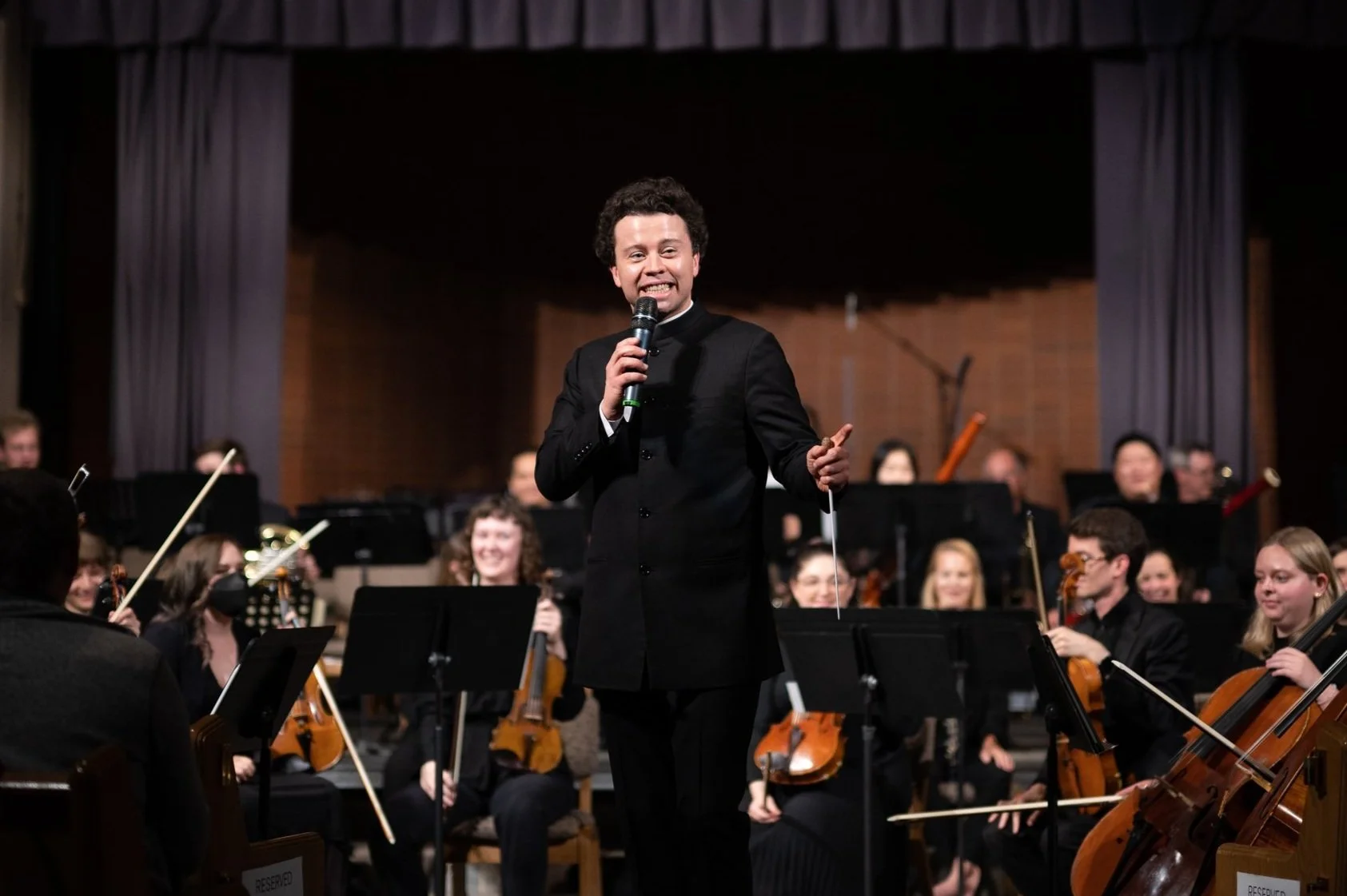Boulder Symphony, with ‘audacity in its DNA,’ revisits bold beginnings for 15th anniversary
By ELLA COBB | ecobb@prairiemountainmedia.com | Daily Camera
PUBLISHED: May 15, 2025 at 10:00 AM MDT
Most people in Boulder know a thing or two about hiking. For your first time on the trails, you usually start slow — a loop at Marshall Mesa, maybe a gentle incline winding through Chautauqua. Eventually, you work your way up to Longs Peak.
The same goes for music — unless, of course, you’re the Boulder Symphony.
When the company launched in 2010, it didn’t ease into the classical canon softly. Rather than dip a toe in the orchestral waters, it dived right in and opened with Beethoven’s Ninth Symphony, a 65-minute epic known for its technical demands, emotional weightiness and a final movement that requires a full chorus to sing about joy and brotherhood … in German. It’s the musical equivalent of summiting Everest in brand-new boots. Most ensembles spend years building up to it, but Boulder Symphony started there with its very first concert back in 2010.
Now, 15 years later, the orchestra is returning to the one piece that started it all.
This weekend’s anniversary concert brings Beethoven’s Ninth back to the stage, not just as a nod to the past, but as a kind of musical mile marker. What was once a daring, slightly wild opening act is now a full-circle moment for a symphony that has grown in size, scope and ambition.
Before the full orchestra takes the stage, the concert will begin with a smaller, but no less meaningful, performance. Thirty kids, ages 5 to 11 — all students in the Boulder Symphony Music Academy — will perform a pared-down version of “Ode to Joy.” The arrangement is simple, but the gesture carries weight. The youngest musicians in the organization will open a concert rooted in legacy and continuity, literally handing off the music from one generation to the next.
“You can imagine that being the first piece an orchestra just starting out would choose to play was a little ambitious,” said Music Director Devin Patrick Hughes. “But that kind of audacity has always been part of our DNA.”
Back in 2008, the group was known as the Niwot Timberline Symphony. By 2010, they’d rebranded as Boulder Symphony and performed a debut concert with Hughes on the podium, as he has been ever since.
“I’ve been the music director and conductor the whole time,” he said. “We’ve gone from a $50,000 budget to $500,000, and built a full-time Music Academy with over 140 students.”
The academy, which was launched in the early days of the pandemic, now offers firsthand instruction in violin, guitar, voice and percussion, to name a few. Scholarships are available to ensure cost isn’t a barrier, and many of the teachers also perform in the orchestra. The result is a rare kind of feedback loop where students grow up watching their teachers on stage, and then take the stage themselves.
The orchestra’s growth mirrors the ambition of the piece they started with. Beethoven’s Ninth is more than an hour long. For a musician, it demands stamina, precision and emotional range from everyone involved. Its final movement breaks the mold of a traditional symphony, bringing in soloists and a full chorus to sing the famous “Ode to Joy,” a roaring declaration so full of collective hope that’s shown up everywhere from graduation ceremonies to action movies.
“Even to this day, it’s still a difficult work,” Hughes said. “We just started rehearsing last night and it’s still hard to grasp. But that kind of ambition reflects what we’ve always been about at the Boulder Symphony: creating, connecting, making art that moves people.”
Hughes pointed out that when Beethoven premiered the piece in 1824, the composer was completely deaf and operating without institutional backing. At age 53, Beethoven had to fund the concert himself, secure police permission and assemble an orchestra comprised of professionals and amateurs who had limited rehearsal time. There was no endowment, no formal symphony organization, only a monumental piece of music and a city full of anticipation.
“There wasn’t even such a thing as a professional orchestra then,” Hughes said. “He just gathered people, some beginners, some pros, and most of them met the day of the concert. It was wild.”
That chaotic spirit still hums through the music. While Hughes sees the Ninth as a technical achievement, he also sees it as a call for compassion, connection and camaraderie; a piece of music that asks people to let go of division and imagine a better, more cooperative way of living.
“Beethoven literally has a baritone stand up and say, ‘Friends, not these tones!’” Hughes said. “He was saying there’s a better way to live. That message of joy, of brotherhood, of unity … there’s nothing like it.”
For Hughes, that message also reflects the broader philosophy of the symphony: that classical music isn’t some exclusive, highbrow affair, but something raw and real and meant to be shared.
“You don’t need to understand everything to feel something,” he said. “That’s what we’re trying to do. Make music that’s both relatable and affordable.”
This weekend’s return to Beethoven’s Ninth won’t mark the end of the season. There’s a Fourth of July concert coming up at the Boulder Bandshell, a summer performance on a local farm with singer-songwriter Rebecca Folsom, and a brand-new Symphony Yoga Series, held in partnership with Yoga Pearl, starting this July at Sunrise Amphitheater.
Still, it’s Sunday’s concert, back at Grace Commons, with the piece that started it all, that carries the most emotional weight.
“The music reminds us there are no borders, no grudges worth holding onto,” Hughes said. “It’s healing and it’s unifying. That’s what Beethoven was trying to say. That’s what I hope people understand from the music, and I hope that’s the lesson they leave with.”
